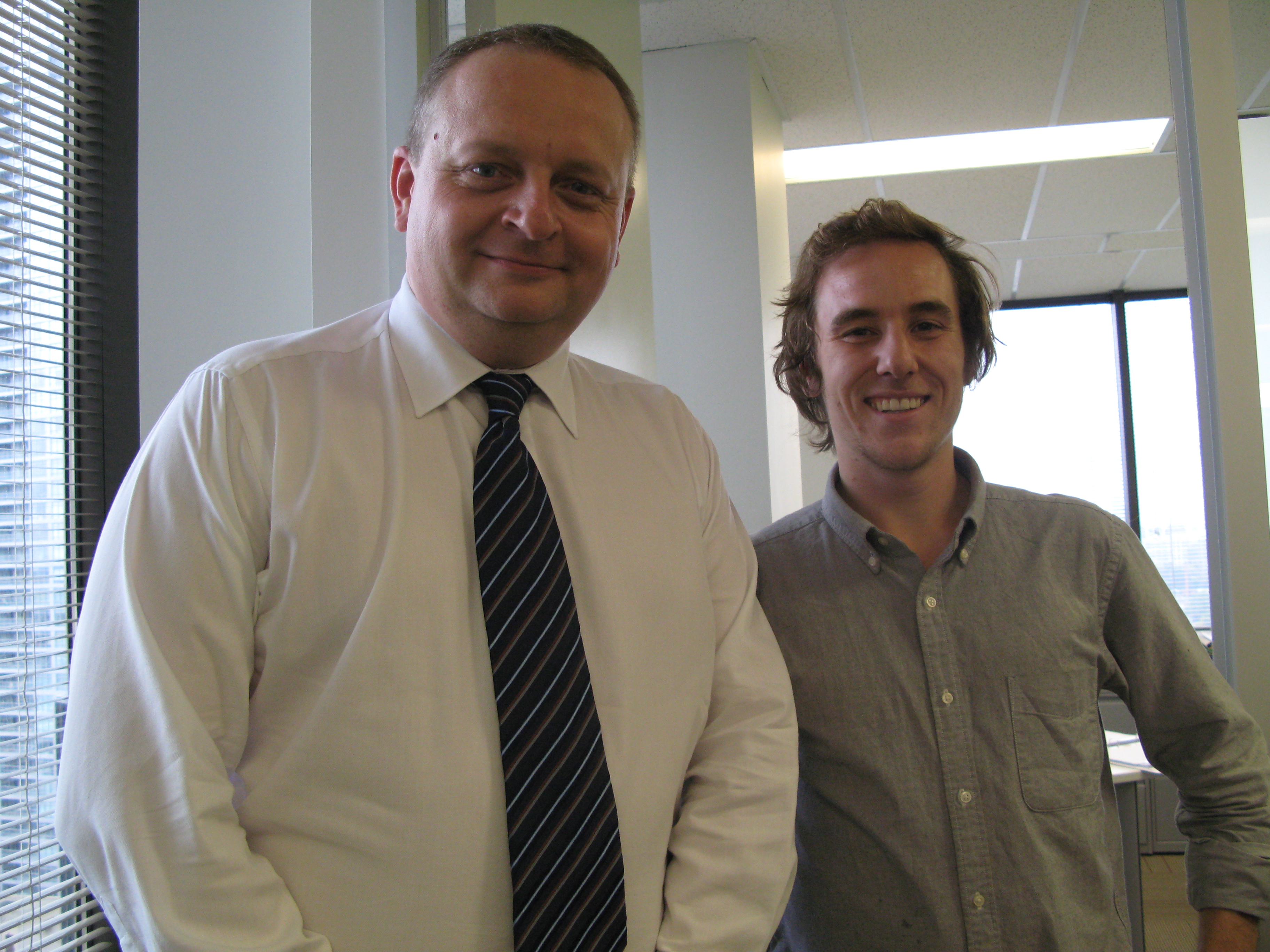
Visitor from abroad
With so much accomplished by Alzheimer’s Societies in Canada over the previous thirty years, it is easy to forget how far we have come. Sometimes, it takes the perspective of an outsider to remind us how lucky we are.
Last week the Alzheimer Society of Ontario was host to a special guest. Ivan Vnuk visited our offices in Toronto from Slovakia. He was mainly here to attend our First Link® conference to learn more about the program and how he could implement something similar in his home country. He is the president of a nascent Alzheimer’s Society based in Bratislava where they are only just beginning their important work. It is also staffed entirely by volunteers—Ivan quit his job for a year to take on the roll of President of Alzheimer Slovakia —and operates on an annual budget of $9,000.
I had the chance to speak with Mr. Vnuk about his visit, the Society, and the state of Alzheimer’s disease in Slovakia:
I decided to visit after the Alzheimer’s Society of Ontario’s CEO, Gale Carey, presented at a conference in London England on First Link®. A program like this is needed in Slovakia, where people who have been diagnosed with Alzheimer’s disease and other dementias have nowhere to turn.
In my county and elsewhere in Eastern Europe, dementia is not seen as a disease. So when somebody arrives at the hospital, they are told that dementia is a social issue and sent to social services. But when they arrive at social services, they are told that this is not a social issue and referred back to the hospital. Nobody is able to help them and provide important information.
Stigma is also a problem within the family. Family members are ashamed when their relatives have dementia. They deny that there is a problem or simply hide people with dementia away instead of giving them proper care.
We have two goals. We want government legislation recognizing dementia as a disease. We also want to educate people about the disease, which would lessen stigma and allow people to provide proper care for their loved ones at home.
Our task is not small. But we are determined. If we can help make life better for one person with Alzheimer’s disease, it will be worth it.
Despite Ivan’s reminder of our good fortune, we cannot become complacent and simply tout our great achievements. Much work remains. Stigma exists in Canada as well. Many people with Alzheimer’s disease reporting feelings of social exclusion among co-workers, friends, and families. We need your support to continue on.
Ryan MacKellar
Marketing and Communications intern
